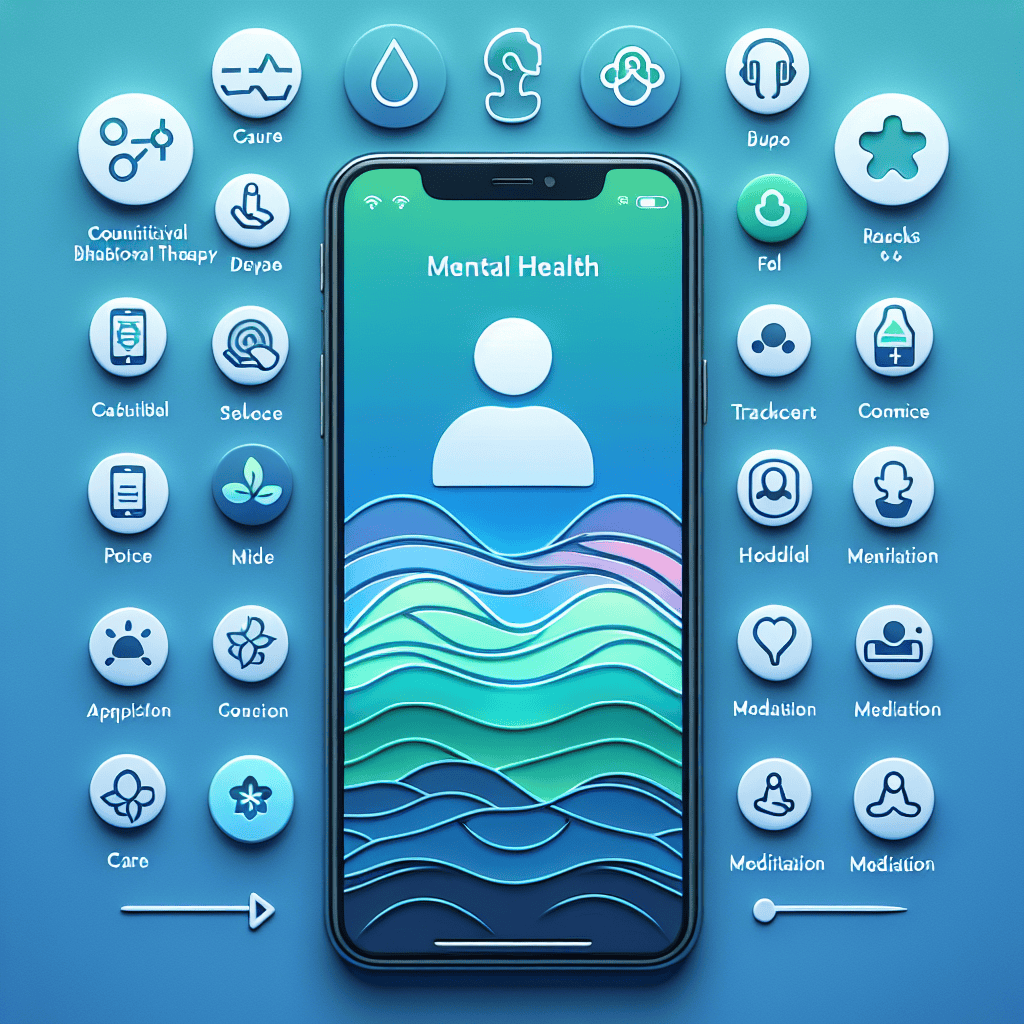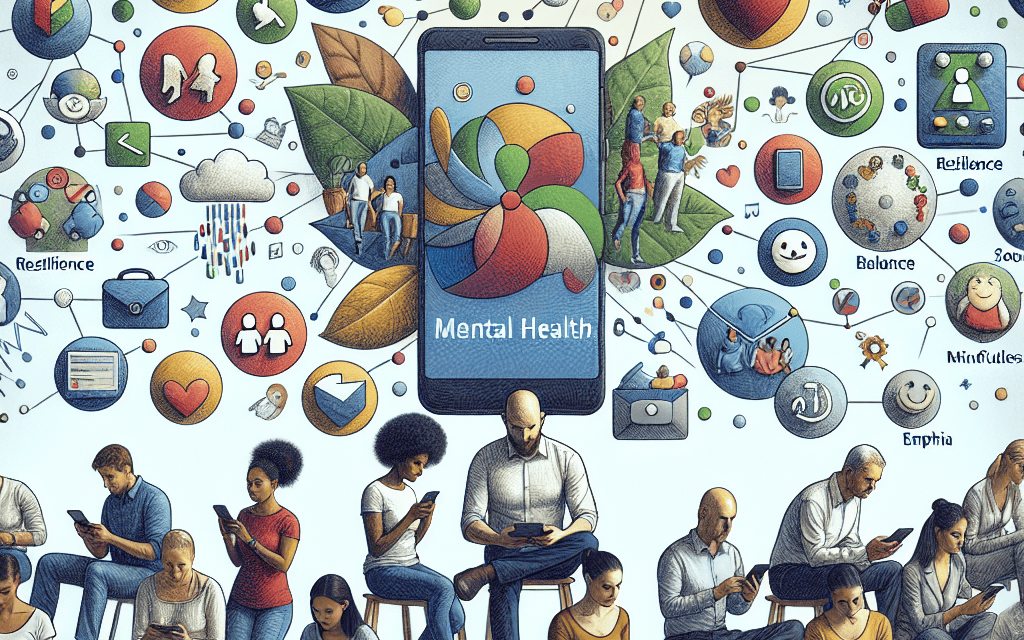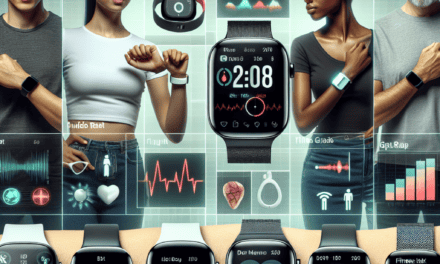-
Table of Contents
Mental Health Apps: Technology’s Answer to Accessible Care

In recent years, mental health has become a focal point of public health discussions worldwide. With the increasing prevalence of mental health disorders and the stigma surrounding them, there is a growing need for accessible and effective care solutions. Enter mental health apps—digital tools designed to provide support, therapy, and resources to individuals seeking help. These apps have emerged as a promising solution to bridge the gap between traditional mental health services and the needs of the modern world. This article explores the role of mental health apps in providing accessible care, examining their benefits, challenges, and future potential.
The Rise of Mental Health Apps
The proliferation of smartphones and the internet has revolutionized how we access information and services. Mental health apps have capitalized on this digital transformation, offering users a convenient and often cost-effective way to manage their mental well-being. The rise of these apps can be attributed to several factors, including increased awareness of mental health issues, technological advancements, and the demand for personalized care.
According to a report by the World Health Organization, depression and anxiety disorders cost the global economy $1 trillion each year in lost productivity. This staggering figure highlights the urgent need for innovative solutions to address mental health challenges. Mental health apps have emerged as a viable option, providing users with tools to track their mood, access therapy sessions, and connect with support communities.
One of the key drivers behind the rise of mental health apps is the growing acceptance of digital health solutions. As more people become comfortable with using technology to manage their health, mental health apps have gained traction as a legitimate form of care. This shift is particularly evident among younger generations, who are more likely to seek help through digital platforms than traditional in-person therapy.
Moreover, the COVID-19 pandemic has accelerated the adoption of mental health apps. With lockdowns and social distancing measures in place, many individuals have turned to digital solutions to cope with stress, anxiety, and isolation. This surge in demand has prompted developers to create more sophisticated and user-friendly apps, further solidifying their place in the mental health care landscape.
Case Study: Headspace
Headspace is a popular mental health app that offers guided meditation and mindfulness exercises. Founded in 2010, the app has grown to become one of the leading platforms in the mental health space, with millions of users worldwide. Headspace’s success can be attributed to its user-friendly interface, evidence-based content, and focus on promoting mental well-being through mindfulness.
The app offers a range of features, including meditation sessions, sleep aids, and stress management tools. Users can choose from various programs tailored to their specific needs, such as anxiety reduction, focus improvement, and sleep enhancement. Headspace’s emphasis on mindfulness has resonated with users, helping them develop healthier habits and improve their overall mental health.
Headspace’s impact extends beyond individual users. The app has partnered with organizations and educational institutions to promote mental well-being in the workplace and schools. By providing employees and students with access to mindfulness resources, Headspace aims to create a culture of mental health awareness and support.
Benefits of Mental Health Apps
Mental health apps offer numerous benefits that make them an attractive option for individuals seeking support. These advantages include accessibility, affordability, anonymity, and personalization. By leveraging technology, mental health apps provide users with a convenient and effective way to manage their mental well-being.
Accessibility
One of the most significant benefits of mental health apps is their accessibility. Traditional mental health services often require individuals to schedule appointments, travel to a therapist’s office, and adhere to specific time slots. In contrast, mental health apps allow users to access support anytime and anywhere, making it easier for individuals to incorporate mental health care into their daily lives.
This accessibility is particularly beneficial for individuals living in remote or underserved areas, where mental health services may be limited or unavailable. By providing digital access to therapy and resources, mental health apps help bridge the gap between individuals and the care they need.
Affordability
Cost is a significant barrier to accessing mental health care for many individuals. Traditional therapy sessions can be expensive, with fees ranging from $100 to $200 per hour. Mental health apps offer a more affordable alternative, with many apps providing free or low-cost services.
For example, apps like Calm and Insight Timer offer free meditation and mindfulness exercises, while others like BetterHelp and Talkspace provide subscription-based therapy services at a fraction of the cost of in-person sessions. This affordability makes mental health apps an attractive option for individuals seeking support without breaking the bank.
Anonymity
Stigma remains a significant barrier to seeking mental health care. Many individuals are hesitant to seek help due to concerns about privacy and judgment. Mental health apps offer a level of anonymity that can help alleviate these concerns, allowing users to access support without fear of stigma.
By providing a private and confidential platform, mental health apps empower individuals to take control of their mental health without the fear of being judged or labeled. This anonymity can be particularly beneficial for individuals who are not ready to disclose their mental health struggles to others.
Personalization
Mental health apps offer personalized care tailored to the individual needs of users. Many apps use algorithms and data analytics to provide customized recommendations and interventions based on user input. This personalization ensures that users receive the most relevant and effective support for their specific mental health challenges.
For example, apps like Woebot use artificial intelligence to deliver personalized cognitive-behavioral therapy (CBT) interventions. By analyzing user interactions and feedback, Woebot can adapt its responses to provide targeted support and guidance. This level of personalization enhances the effectiveness of mental health apps, making them a valuable tool for individuals seeking tailored care.
Challenges and Limitations
While mental health apps offer numerous benefits, they also face several challenges and limitations. These include concerns about data privacy, the quality of care, and the potential for over-reliance on digital solutions. Addressing these challenges is crucial to ensuring that mental health apps can provide safe and effective care.
Data Privacy
Data privacy is a significant concern for users of mental health apps. These apps often collect sensitive information, such as mood patterns, therapy sessions, and personal details. Ensuring the security and confidentiality of this data is paramount to maintaining user trust and protecting their privacy.
Many mental health apps have implemented robust security measures to safeguard user data, such as encryption and secure data storage. However, there have been instances of data breaches and unauthorized access, highlighting the need for continuous vigilance and improvement in data protection practices.
To address these concerns, developers must prioritize data privacy and transparency. This includes providing clear information about data collection practices, obtaining user consent, and implementing stringent security protocols. By prioritizing data privacy, mental health apps can build trust with users and ensure the safe handling of sensitive information.</





